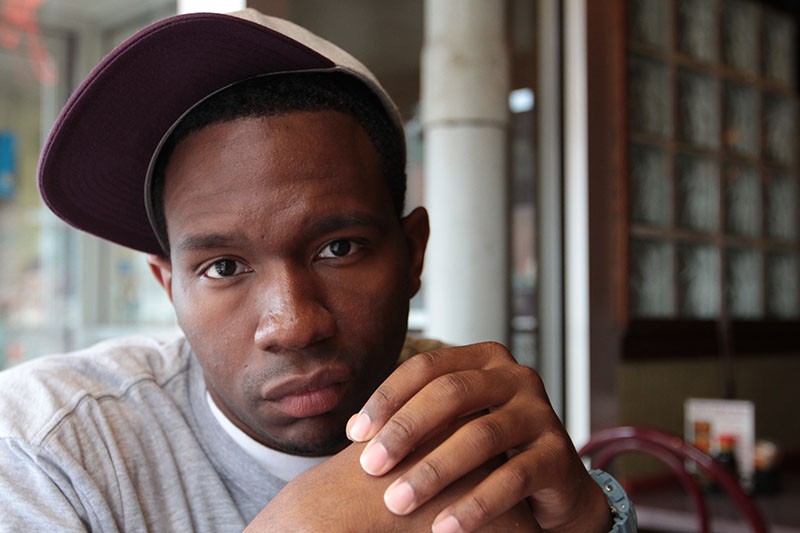In a hip-hop scene constantly celebrated for its modesty, local emcee Malik Watkins ÂâÄî better known by his stage name MaLLy âÄî is somewhat of an anomaly.
At 25, Watkins is a much-needed breath of fresh air for a city that in recent years has become over-saturated with Rhymesayers adulation. And while Watkins expresses nothing short of reverence for the cityâÄôs ever-burgeoning rap empire, he says heâÄôs ready to fill a void.
âÄúWho are the top emcees? ItâÄôs the same people itâÄôs always been for the last 10 years,âÄù Watkins said. âÄúI respect them and I love what they do âĦ But I think the younger people, especially the ones coming up now, are looking for something different.âÄù
And something different is just what Watkins has to offer.
His latest LP, âÄúThe Passion,âÄù is 40 freewheeling minutes of streetwise rap romps that land somewhere in the musical chasm between âÄô90s East Coast and the do-it-yourself aesthetic of the underground âÄî think Saigon meets Brother Ali.
âÄúHeâÄôs not afraid to dabble in different rhyme schemes that arenâÄôt typical of Rhymesayers and Doomtree style of hip-hop. And his dictation and voice really sets him apart,âÄù said his current production partner and political science fourth-year Jonathan Cliby âÄî aka the Sundance Kid.
From the soul-infused groove of âÄúNever Go AwayâÄù to the tough-guy swagger of âÄúThe Passion,âÄù Watkins boasts a certain level of lyrical dexterity and whip-smartness that makes him sound more like a seasoned vet and less of a hip-hop newcomer.
âÄúThis ainâÄôt Christ/this is the passion of an emcee/ainâÄôt dying for nobody/but rap, hip-hop saved me,âÄù he declares early in âÄúThe Passion.âÄù
On record, Watkins sounds like your typical emcee. But he didnâÄôt grow up slanging on street corners or freestyling raps in public school hallways.
Watkins lived in south Minneapolis for most of his life, but he didnâÄôt attend public school. Despite his pleas to be transferred, his mother chose to enroll him in MinneapolisâÄô prestigious Minnehaha Academy âÄî a local private Christian school where he excelled as an honors student.
As one of the few minorities in his class, Watkins, then a fifth grader, knew he stood out among the class of pre dominantly white students. While he admits that he struggled to adjust early on, Watkins took it in stride, leaving the academy with more wisdom than cynicism.
âÄúIt wasnâÄôt resentment at all,âÄù MaLLy said. âÄúI [knew] how to handle those issues instead of lashing out and going off on people. Because thatâÄôs happened before, and when it does, [people] think somethingâÄôs wrong with you.âÄù
And for Watkins, music and entertainment were never just a hobby. They were a full-fledged obsession.
âÄúI can remember when I used to stay in that raggedy apartment in Minneapolis being a really huge fan of Michael Jackson,âÄù Watkins said. âÄúI remember being 4 until I was 8, trying to dance. I sucked at it. IâÄôd be dancing on our wooden coffee table and trying to spin around while my mom was in the other room.âÄù
Watkins knew he wanted to rap from a young age, but didnâÄôt know anything about it. And he definitely didnâÄôt realize or suspect anyone near him was doing it.
It wasnâÄôt until seeing late rapper Eyedea perform on HBOâÄôs âÄúBlaze BattleâÄù in 2000, when Watkins was introduced to what would soon become the thriving Twin Cities hip-hop scene.
âÄúWhen I saw that, I was like âÄòOkay somebody raps here, let me try to find out about more people around here,âÄôâÄù***** MaLLy said. âÄúI respected [Eyedea] for the motivation and inspiration he provided. Every time I saw him or met him, I let him know.âÄùSince the release of his first album âÄî 2007âÄôs âÄúThe LetterâÄù âÄî Watkins has been tirelessly prolific. Despite having a day job at a local auto insurance company, heâÄôs managed to release a decent amount of work that includes numerous EPs and albums âÄî all of which are available on the MaLLy Band-camp page âÄî in just a few short years.
Watkins might not be your favorite Twin Cities rapper, but heâÄôs certainly the most laborious. And his sizeable catalog is a testament to just how serious he really is. ItâÄôs a work ethic that he attributes to his upbringing.
âÄúI feel like IâÄôve grown up with the idea that thereâÄôs something to prove,âÄù Watkins said, referring to his early years as one of the few African-Americans at a private academy. âÄúIf youâÄôre one of something you represent the whole sometimes âĦ I felt like I had to put on a positive role. I donâÄôt take [expletive] but IâÄôm a nice person and I handle business when it needs to be handled. But I have fun too.âÄù








